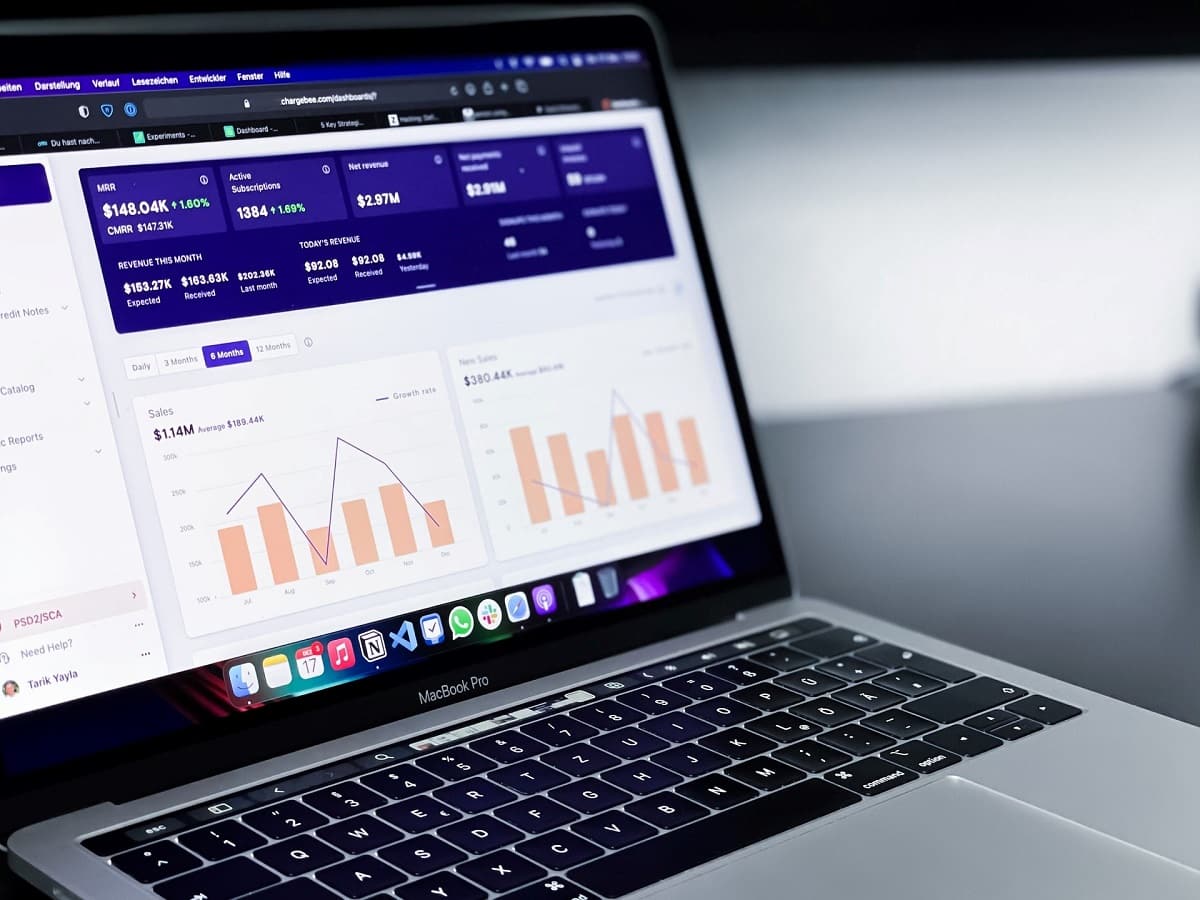Splunk is a technology company that provides software for monitoring, searching, analyzing, and visualizing machine-generated data in real-time. It was found in 2003 by Michael Baum, Rob Das, and Erik Swan. In 2020, Splunk was recognized as a Leader in the Gartner Magic Quadrant for SIEM. It was also named to the Fortune 1000 list in 2020.
Splunk’s growing client list includes 92 companies in the Fortune 100 list like Cisco, Bosch, IBM, Adobe, and Visa. For fiscal 2021, Splunk reported revenue of $2.23 billion. The company has more than 7,500 employees. [1]
Splunk offers several products, including Enterprise, Cloud, Data Stream Processor, IT Service Intelligence, User Behavior Analytics, APM, Infrastructure Monitoring, and more. The company expanded its platform through acquisition, including Phantom Cyber for $350 million in 2018 and SignalFx for $1.05 billion in 2019.
For the full year 2021, Splunk expects a Cloud ARR of around $1.33 billion and revenue of between $2.53 billion and $2.60 billion. Splunk has to fend off top competitors and alternatives like IBM, SolarWinds, and Sumo Logic. [2]
Here is an in-depth analysis of top Splunk’s competitors and alternatives:
1. IBM
Year founded: 1911
Headquarter: Armonk, New York
IBM is a leading software developer that offers IBM QRadar. Splunk and IBM QRadar are the most popular security information and event management (SIEM) solutions globally. With over 350,000 employees and $73.6 billion in revenues, IBM is the fiercest Splunk competitor.
Both IBM and Splunk offer robust SIEM products with distinct benefits to potential buyers. But IBM QRadar uses advanced User Behavior Analytics that addresses insider threats. Unlike Splunk, IBM QRadar leverages automation to detect network flow traffic and security log data.
So, users can analyze millions or billions of data points and get insights faster than Splunk. IBM QRadar integrates with other IBM security solutions, such as Watson AI, IBM Resilient, and UBA. The tech giant serves 47 of the Fortune 50 companies, while Splunk’s client list includes 92 of the Fortune 100 companies. IBM is the top Splunk competitor and alternative in the SIEM sector. [3]

2. LogRhythm
Year founded: 2003
Headquarter: Boulder, Colorado
LogRhythm is a security company specializing in security information, log and event management, network monitoring, and security analytics. The company has more than 4,000 customers and 561 employees across 9 locations globally. Since its founding, LogRhythm has raised $126.3 million in funding.
The main competitive advantage for LogRhythm is its award-winning NextGen SIEM Platform. Like Splunk, LogRhythm’s NextGen SIEM Platform offers security analytics and user behavior analytics.
This integrated platform also delivers network monitoring and security automation, and response solutions. LogRhythm was recognized by Gartner as a SIEM Magic Quadrant Leader for the 9th time in 2021. Its client list includes NASA, Cargill, and XcelEnergy. LogRhythm is one of the most innovative Splunk competitors. [4]
3. Elastic
Year founded: 2012
Headquarter: Mountain View, California
Elastic is a search company that offers enterprise search, observability, and security. The firm’s Elastic Stack is a leading open-source log management solution. For fiscal 2021, Elastic’s annual revenue increased 42% to $608.5 million. The company’s SaaS revenue was $166.3 million, an 80% surge year-over-year.
Elastic’s product portfolio includes Elasticsearch, Logstash, Kibana, and Beats. Organizations can use Elasticsearch for search analytics, Logstash for log processing, and Kibana to visualize their data.
The Elastic stack free version offers standard functionalities. Users can upgrade to the paid premium version to get statistical notifiers, access controls, and reporting solutions. Elastic’s open-source products can poach some customers from Splunk effortlessly. [5]
4. SolarWinds
Year founded: 1999
Headquarter: Austin, Texas
SolarWinds provides solutions to help organizations manage their IT infrastructure, networks, and systems. In 2018, SolarWinds acquired Loggly, a log management and analytics service provider. SolarWinds Loggly is now part of the SolarWinds Cloud division. In 2020, SolarWinds had around 3,200 employees and generated $1.02 billion in revenues.
Before acquiring Loggly, Log Analyzer was SolarWinds’s alternative to Splunk Analytics. This solution allows users to pull and analyze data from event-generation systems and generate reports. With Loggly and Log Analyzer, SolarWinds now competes with Splunk across the board.
The company also offers an IT management system Orion, used by more than 30,000 organizations. In 2020, hackers breached SolarWinds Orion and gained access to networks and data of more than 18,000 customers. This hack undercut SolarWinds’s competitive edge. But SolarWinds Loggly can still poach some customers from Splunk. [6]
5. Sumo Logic
Year founded: 2010
Headquarter: Redwood City, California
Sumo Logic is a data analytics company. Like Splunk, Sumo Logic offers log management and analytics services focusing on security, operations, and BI use cases. Sumo Logic has accelerated its global expansion in recent months.
The company launched its Cloud SIEM solution across Japan in Jul 2021. In 2020, Sumo Logic had around 800 employees and generated $155 million in revenues.
Both Splunk and Sumo Logic use machine-generated data to help organizations acquire IT insights in real-time. More than 2,100 customers globally rely on Sumo Logic’s cloud-native log-analysis service to discover anomalies and outliers in their data and anticipate disruptive events. The main competitive advantage for Sumo Logic over Splunk is its industry-first Continuous Intelligence Platform. This platform automates data collection, ingestion, and analysis and delivers actionable insights within seconds.
As the pioneer in continuous intelligence, Sumo Logic is one of the most innovative Splunk competitors. Its Continuous Intelligence Platform is the best Splunk alternative for modern applications and cloud infrastructures. [7]
6. Micro Focus
Year founded: 1976
Headquarter: Newbury, UK
Micro Focus is a British multinational software and IT company that provides mission-critical technology for enterprises. The company offers data center solutions, endpoint and identity access management, security analytics, big data, information security, consultancy, and more. In 2020, Micro Focus had 12,000 employees and accumulated $3 billion in revenues.
Micro Focus provides predictive analytics, enterprise DevOps, and hybrid IT management to help organizations bridge the gap between old and new technologies. More than 40,000 customers globally use its software products to protect their IT investments.
In 2020, the company unveiled a three-year plan to increase revenue growth and generate around $700 million of free cash flow annually. Experts predict that its shares will surge more than 150% in the second half of 2021, thanks to this ambitious plan. Micro Focus is a perfect Splunk alternative for predictive analytics and enterprise DevOps. [8]
7. FireEye
Year founded: 2004
Headquarter: Milpitas, California
FireEye is a cybersecurity firm that offers security technologies, threat intelligence, and consulting. The company’s scalable platform blends nation-state-grade solutions and works as an extension of the customer’s security operations. For the full year 2020, FireEye’s annualized recurring revenue increased by 8% to $638 million. Revenue from its platform, cloud subscription, and managed services surged 20% to $340 million. [9]
FireEye is more specialized in security technologies and threat intelligence than Splunk. More than 10,100 customers from around 103 countries rely on FireEye to eliminate the complexities of cyber security.
The company also offers security consulting services via Mandiant to help organizations anticipate, prevent, and respond to cyber-attacks. Its growing client list includes more than 50% of the Forbes Global 2000 companies. FireEye is the best Splunk alternative for cyber security and threat intelligence solutions. [10]
8. Datadog
Year founded: 2010
Headquarter: New York City, New York
Datadog is a SaaS analytics company that offers data observability services. The platform provides monitoring and analytics tools for IT professionals and DevOps teams. For fiscal 2021, Datadog’s annual revenue was $802 million. The cloud software company has 2,606 employees, about a sixth of Splunk’s workforce.
Like Splunk, Datadog allows DevOps teams to analyze their performance metrics and execute event monitoring for infrastructure and cloud services. Organizations can also use this SaaS-based data analytics platform to monitor servers, services, databases, and tools.
Datadog reported better-than-expected results in 2021. In Aug 2021, its stocks surged to a record $132.47. Datadog is one of the top competitors for Splunk in data observability services. [11]
9. McAfee
Year founded: 1987
Headquarter: San Jose, California
McAfee is a device-to-cloud cybersecurity company with over 18 million subscribers and 7,000 employees across 43 locations. The company went public in October 2020 in a $740 million IPO. In 2020, McAfee added 2.8 million new subscribers and saw a 10% increase in revenue to $2.91 billion. Its subscriber list has been growing for thirteen consecutive quarters. [12]
McAfee’s Enterprise business competes with Splunk Enterprise. But McAfee is restructuring its business to become a pure-play consumer cybersecurity company. In Jul 2021, the company sold some of its Enterprise assets to Symphony Technology Group for $4.0 billion.
The divestiture will accelerate McAfee’s strategy as a leader in consumer security, but it also reduces the area of competition with Splunk. [13]
10. LogDNA
Year founded: 2015
Headquarter: Mountain View, California
LogDNA is a tech company that offers log management for DevOps teams. Its solution aggregates system logs into a single platform and provides insights to help DevOps teams develop and debug their applications. The company makes around $15 million annually.
LogDNA empowers startups and Fortune 500 companies like Asics, Better.com, Sysdig, and 6 River Systems. In Aug 2021, LogDNA was named by Fortune as one of the 2021 Best Small & Medium Workplaces.
Unlike Splunk, LogDNA does not requires configuration on the delegation of logs. LogDNA uses a usage-based pricing model ranging from $1.50 per GB to $3 per GB per month, making it a cheaper alternative to Splunk. [14]
References & more information
- Taylor, D. (2021, Aug 28). Splunk Tutorial for Beginners: What is Splunk Tool? Guru99
- Hogan, P. (2021, Aug 25). Splunk Announces Fiscal Second Quarter 2022 Financial Results. Business Wire
- Preimesberger, C. (2021, Mar 15). Splunk vs. IBM QRadar: SIEM Head-to-Head. E-Week
- LogRhythm (2021, Jul 7). LogRhythm Recognized as a Leader in Gartner 2021 Magic Quadrant. LogRhythm Press
- Boughner, L. (2021, Jun 2). Elastic Reports Strong Fourth Quarter and Fiscal 2021 Financial Results. Business Wire
- Oladimeji, S. (2021, Jun 16). SolarWinds hack explained: Everything you need to know. Tech Target
- Liton, M. (2021, Jul 12). Sumo Logic Accelerates Expansion Across Japan. Globe Newswire
- Frazer, S. (2021, Jun 25). Why one analyst believes IT updater Micro Focus could soar beyond £14. Shares Magazine
- Condon, S. (2021, Feb 2). FireEye posts record revenue in Q4. ZDNet
- FireEye, Inc. (2021, Jul 9). FireEye to announce Second Quarter 2021 Financial Results on Aug 5, 2021. Business Wire
- Levy, A. (2021, Aug 5). Cloud stocks soar to fresh records as Datadog’s results help boost Cloudflare and Asana. CNBC
- McAfee Corp. (2021, Feb 23). McAfee’s Fourth Quarter Revenue Grows 14%, Powered by 23% Consumer Revenue Growth. Business Wire
- Fleites, E. (2021, Jul 27). McAfee Completes the Divestiture of Its Enterprise Business to STG. McAfee Press
- Tanner, J. (2021, Aug 9). LogDNA Named to Fortune Best Small and Medium Workplaces List for Second Consecutive Year. Business Wire
- Featured Image by Luke Chesser
Tell us what you think? Did you find this article interesting? Share your thoughts and experiences in the comments section below.












Add comment